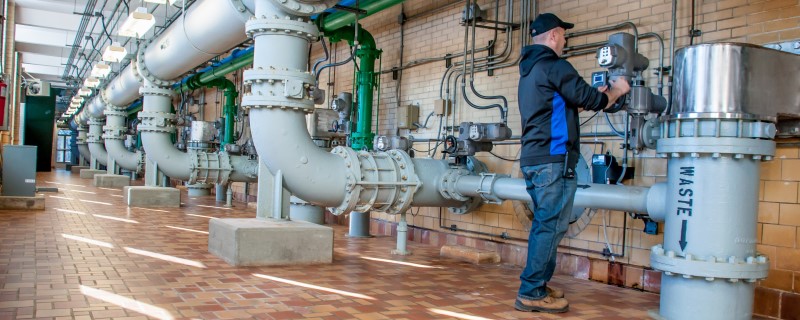
Special to Iredell Free News
The City of Statesville has released its 2020 Water Quality Report, which shows the city’s drinking water meets or exceeds every health standard developed by both the U.S. Environmental Protection Agency (EPA) and the N.C. Department of Environment and Natural Resources (DENR).
Statesville’s Water Quality Report is prepared by the City’s Water Resources Department to meet the EPA’s National Primary Drinking Water Regulation for Consumer Confidence Reports (CCR). It details drinking water sources, the testing methodology, the substances detected in the water and the levels of those substances.
It can be viewed online at statesvillenc.net/waterreport. Hard copies can be obtained by calling 704-878-3441.
The report gives the background on Statesville’s water system, explains the testing and many of the terms used in the information, and provides a variety of useful charts.
“We are very proud of our success in providing Statesville with a reliable supply of safe and affordable drinking water,” said Harry Hull, Statesville’s Water Resources Plant supervisor. “Our mission is to support public safety and public health and to enhance regional economic development. That means ensuring our water continues to be a good value.”
Protection of drinking water, however, is everyone’s responsibility. Simple ways to protect our drinking water sources include disposing of chemicals properly and taking used motor oil to a recycling center.
Protecting our storm drains is a very beneficial way to protect our water sources. Resident can help by keeping debris away from the drains and reporting any issues with storm drains to 866-4-1-STORM.
Statesville has been serving water to the community for many decades and is committed to providing its customers with water that meets more than 150 state and federal drinking water standards.
The city draws its source water from the Catawba River Basin on Lookout Shoals Lake and has a backup source from the South Yadkin River. The city also has a few interconnects with other close municipalities for emergency or regular use if needed.



